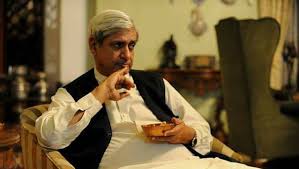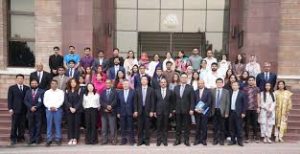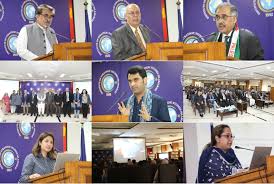Strong regional and international cooperation vital to combating Desert Locust in Pakistan and beyond

Islamabad: Pakistan Thursday underlined that strong regional and international cooperative mechanisms are vital to addressing the serious threat posed by Desert Locusts to the food security of Pakistan and the region.
At a briefing to the diplomatic community by the National Locust Control Centre (NLCC), in Islamabad, Syed Fakhar Imam, Minister for National Food Security and Research, who led the briefing, appreciated the role of the Governments of China, the United Kingdom and Japan for joining hands with Pakistan in thwarting the Desert Locust threat.
The gathering was informed that the current outbreak is the worst in over 25 years and that the pest is migrating towards Pakistan from countries in the region as well as from the Horn of Africa and the Red Sea area.
The Minister further acknowledged the important contribution of the United Nations Food and Agriculture Organization (FAO) in extending support to Pakistan. The National Plan of Action, which was devised in consultation with the provincial governments, was an illustration of the whole-of-government approach and was delivering substantive results, the Minister added.
Maj. General Saeed, Deputy Coordinator of the NLCC, briefed the participants on the structure and working of the NLCC, while Mr. Omar Hamid Khan, Secretary National Food Security and Research, outlined financial and technical resources allocated to the national effort. Lt. General Moazzam Ejaz, National Coordinator NLCC and Engineer-in-Chief was present.
The briefing to members of the diplomatic community and international partners was part of the on-going efforts, led by Prime Minister Imran Khan, to mitigate the threat of Desert Locust since the declaration of National Emergency on 31 January 2020. The briefing provided an opportunity to inform them of the multi-dimensional challenges posed by locusts amid simultaneous efforts to combat COVID-19 pandemic.
The participants were also informed of strong support and cooperation extended by Pakistan to the relevant regional countries under the FAO’s Commission for Controlling the Desert Locust in South-West Asia (SWAC). Pakistan has been sharing information and data on weekly basis, on its locust control operations at the bordering areas with all members of SWAC (Iran, Afghanistan and India).
In the spirit of enhancing international cooperation, Pakistan has also reached out to 17 African countries (Algeria, Burundi, Chad, Central African Republic, Eritrea, Ethiopia, Kenya, Libya, Mauritania, Mali, Niger, Rwanda, Tunisia, Sudan, Somalia, Tanzania and Uganda) as well as several Middle Eastern States including Saudi Arabia, UAE, Yemen and Oman, to enhance bilateral cooperation in defeating Desert Locust.
The event was attended by Ambassadors, High Commissioners and representatives from China, Turkey, Saudi Arabia, the United Kingdom, the United States of America, Canada, Oman, Kenya, Sudan, Yemen, Japan, Afghanistan, Australia, Italy, European Commission, Turkmenistan, Iran, United Arab Emirates, Somalia, Germany and France. Heads of UN agencies and International Financial Institutions as well as members of the print and electronic media also attended.





